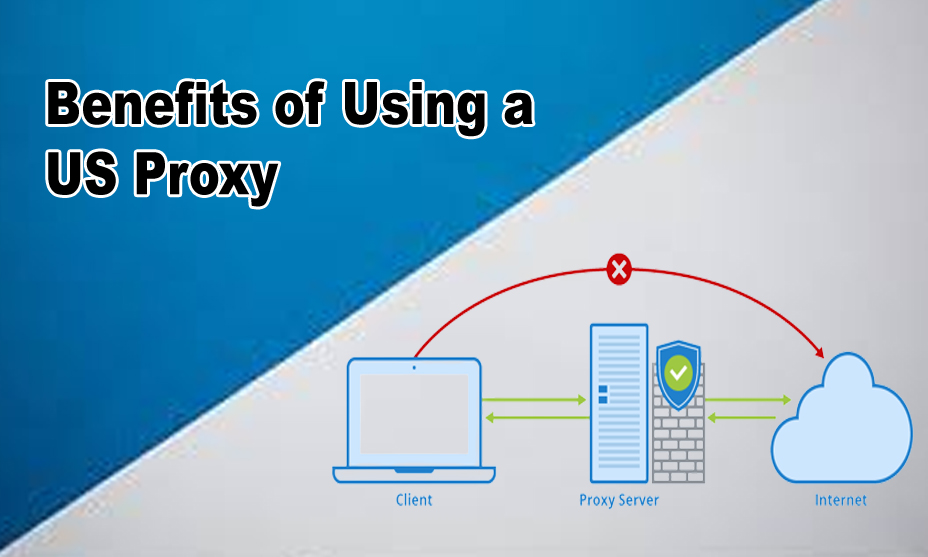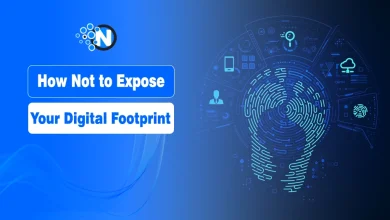Main Benefits of Using a US Proxy for Web Scraping
With each passing day, websites are increasingly collecting their visitors’ data, with companies then using it to track or identify them online. For instance, websites gather data such as your IP address to determine your location.
It is based on this location-based information that websites determine which content to display and whether or not you qualify to view the content in the first place. Simply put, IP addresses play a huge role in facilitating geo-restriction and geotargeting. But there are ways to circumvent this problem, one of which is the use of proxy servers.
What You Should Know About a Proxy Server?
Proxy servers or proxies go a long way in providing online anonymity, which in turn helps you cover your tracks in this largely virtual world. Moreover, they enable you to bypass geo-restrictions; a US proxy is a good case in point – more on this below. But first, let us understand the workings of proxy servers.
These solutions provide online anonymity and privacy by foundationally acting as a gateway between you (your computer) and the internet. Thus, all HTTP and HTTPS requests generated by your browser first go through this intermediary, which then directs them to the target website. Similarly, all responses from the web server first go through the proxy before finding their way to your computer.
In the process of routing traffic through itself, the proxy does some things. (It is, however, worth pointing out that the intermediary’s role depends on whether it is integrated into a web client or a web server).
When integrated into a web client, the proxy is known as a forward proxy, and it primarily hides your IP address and assigns a new one instead. This act of masking your real IP address contributes to the proxy’s ability to boost online anonymity and privacy. On the other hand, when integrated into a web server, it is known as a reverse proxy, and it helps protect the web server, as detailed below.
Uses of Proxy Servers
Here are important uses of proxy servers that you should know about.
1. Bypass Geo-restriction
Also known as geo-blocking, geo-restriction is the practice where websites only display content to visitors from specific pre-determined locations. This means that visitors from other countries cannot access the content and will be told that the website is unavailable in that region.
Some websites also practice geo-restriction differently – they display different content to users based on their location. This means a visitor located in South Africa, for instance, does not get to view or access the same content as a user in the United States. This is where a US proxy comes in.
A US proxy assigns your computer a US IP address. In collecting the IP address, as is the norm, the websites will capture your location as that which is associated with the assigned IP rather than your real one. This way, you will appear to be in the US and, therefore, have access to US content you would not have accessed before. You can use the US proxy to gather otherwise restricted data from e-commerce websites. You can also use it to view content from streaming platforms or verify ads (ad verification).
2. Provide Online Anonymity and Privacy
Proxies hide your real IP address and assign a new IP. This way, they prevent third-party entities from knowing your real location, guaranteeing online anonymity and privacy. For this reason, proxies are used in web scraping, collecting data from websites. Proxies are preferred in web data harvesting because they prevent IP blocks – they facilitate seamless and uninterrupted data collection.
3. Restrict Access to Certain Websites
Transparent proxies are normally used to block access to specific websites or web pages. Usually, they are used in learning institutions, public libraries, and workplaces.
4. Cybersecurity
Proxies, such as data centers and HTTP proxies, boost cybersecurity by screening incoming emails for phishing links, malware, and viruses.
5. Load Balancing
Reverse proxies help offload the demand on server resources by distributing incoming requests among multiple servers. Known as load balancing, this process ensures the server does not get overwhelmed by the requests. This is particularly crucial because an overload can cause the website to crash. In this regard, reverse proxies help prevent Distributed Denial of Service (DDoS) attacks. Moreover, they improve websites’ uptime and loading speeds, given that visitors are connected to the nearest server.
6. Caching Frequently Accessed Content
Additionally, reverse proxies store frequently accessed web content freeing up the bandwidth for other important tasks.
Benefits of Using a US Proxy
TikTok Overview

1. Access to Geographically Restricted Content:
Numerous online platforms offer distinct content and impose limitations based on the geographical location of users. However, bypassing these restrictions is possible through the utilization of a US proxy. Users can adopt a virtual presence within the United States, enabling them to access location-specific information and services.
This becomes particularly advantageous when dealing with websites that furnish data dependent on the user’s whereabouts or when evaluating a website’s accessibility from the perspective of a US-based visitor.
2. Enhanced Anonymity and Privacy:
The effort of web scraping entails increasing large amounts of data, necessitating the preservation of anonymity and privacy. Embedding your web scraping requests within a US proxy adds a layer of concealment. Instead of revealing your actual IP address, the website perceives the IP address of the proxy server.
3. Improved Performance:
Proxies also play a pivotal role in optimizing the performance of web scraping endeavors. By integrating a US proxy server into the equation, users can mitigate latency issues and enhance response times when accessing US-based websites. This augmented swiftness expedites the scraping process, facilitating more efficient data retrieval and ensuring the timely completion of scraping tasks.
4. Scalability and Load Management:
Employing a US proxy serves as an effective solution to tackle this challenge. Users can effectively distribute the scraping requests, enabling a balanced workload distribution. This approach effectively mitigates the risk of server overloads and guarantees seamless scalability for scraping activities, even when confronted with a substantial influx of requests.
5. Overcoming IP Blocking and Rate Limiting:
Certain websites implement IP blocking and rate-limiting mechanisms to avoid automated scraping or restricting access from particular IP addresses or regions. Nevertheless, these barriers can be overcome by leveraging a US proxy.
Final Words
Proxy servers offer numerous benefits, from enabling you to bypass geo-restrictions to facilitating web scraping by providing online anonymity and privacy. These benefits are anchored in that proxies mask your real IP address and instead assign a new one. For instance, a US proxy assigns a US-based IP, thus making it appear as though you are located in the US. This way, you can access websites that would otherwise be geo-blocked.





